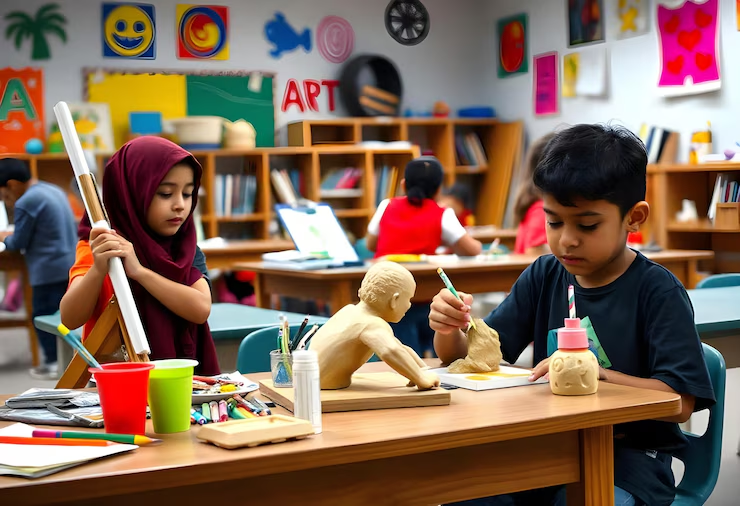Early education plays a pivotal role in shaping a child’s development, and one of the most valuable aspects of this formative period is the cultivation of practical life skills. These essential skills not only prepare children for daily tasks but also build the foundation for independence, self-confidence, and a sense of responsibility. Practical life skills are integral to Brainy Stars International Montessori & School, pre-school in Jayanagar and other holistic education systems; their importance cannot be overstated.
Fostering independence
A key advantage of instructing basic life skills to young kids is the development of self-reliance it encourages. Simple tasks like pouring water, tying shoelaces, or setting a table are not just chores; they allow children to learn how to manage themselves and their surroundings. This early exposure to self-sufficiency encourages children to take control of their daily routines and instils confidence in their abilities. By mastering tasks independently, children at Brainy Stars International Montessori & School best preschool in Jayanagar, develop a “can-do” attitude that sets the stage for tackling more complex challenges as they grow.
Enhancing motor skills
Practical life activities are instrumental in developing fine and gross motor skills. Tasks that require precise movements, like fastening buttons or using scissors to cut, enhance the ability to coordinate hand and eye movements and skilful hand movements. Gross motor activities, like sweeping or carrying objects, help build strength, balance, and coordination. These motor skills are critical not only for physical development but also for cognitive growth, as they engage the brain in problem-solving and decision-making processes. By incorporating these activities into early education, children of Brainy Stars International Montessori & School build the physical and mental agility required for academic success.
Building focus and concentration
Practical life skills require focus, concentration, and attention to detail. Whether a child is learning to fold laundry or bake a cake, they must follow steps, pay attention to results, and correct mistakes. These activities naturally engage children in a way that fosters sustained concentration. Over time, they become more adept at focusing on tasks, which translates to better attention spans in the classroom. This ability to focus becomes a vital skill as children progress through their education, allowing them to absorb and process information more effectively.
Instilling responsibility and accountability
When children participate in real-world tasks, they learn that their actions have consequences. For instance, if they spill water while pouring, they are responsible for cleaning it up. This helps children understand the importance of taking ownership of their actions. As they grow, this responsibility extends beyond household tasks to include academic responsibilities, personal care, and eventually, community engagement.
Encouraging social development
Many practical life activities involve working with others, whether tidying up a classroom, preparing a snack, or participating in group gardening projects. These tasks encourage teamwork, collaboration, and respect for others. Children learn to share, communicate, and resolve conflicts, which are key social skills needed for healthy interpersonal relationships. Early exposure to these experiences helps children of Brainy Stars International Montessori & School navigate social settings with confidence and respect.
Preparing for future success
Practical life skills lay the groundwork for future success. By learning how to manage their environment, children are better equipped to handle the challenges of adulthood, from managing time to balancing responsibilities. These skills are often the unseen but essential elements of a successful academic and professional career. Children who are comfortable taking initiative, solving problems, and working independently are better prepared to navigate the complexities of life beyond school.
Conclusion
Incorporating practical life skills into early education is essential for fostering independence, building motor skills, and developing focus, responsibility, and social aptitude. These skills help children become capable, confident individuals ready to face future challenges. By emphasizing practical life skills, educators and parents at Brainy Stars International Montessori & School the best preschool in Jayanagar ensure that children not only succeed academically but also grow into well-rounded, self-reliant individuals.





